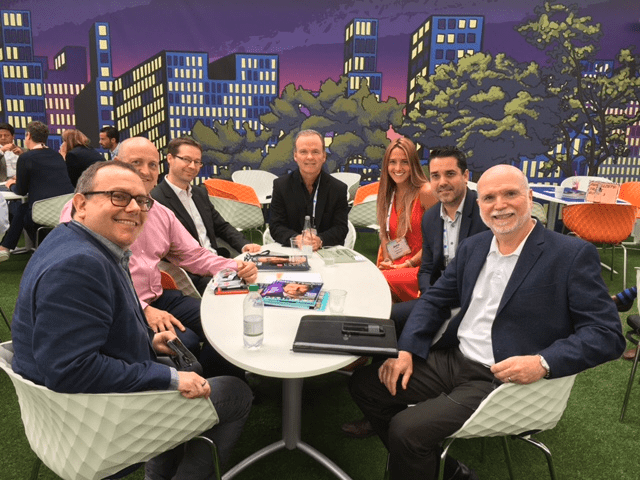
Today was the final day of Money20/20 Europe, during which the leading minds in biometrics and FinTech took the stage to discuss multimodal biometrics in the world of modern day commerce. Peter O’Neill, president of FindBiometrics, moderated The power of choice: Why multimodal biometrics are taking over consumer facing FinTech – a dynamic discussion about finance and identity, first providing an industry overview detailing how advances in biometrics over the past four years truly have changed they way consumers and financial institutions interact with money.
O’Neill then introduced his formidable panel of experts: BioConnect CEO Rob Douglas; FacePhi CEO Javier Mira; Guillaume Yribarren, VP Marketing, OT-Morpho; Craig Ramsay, Head of Innovation, Global Liquidity and Cash Management, HSBC; and Jonathan Vaux, Executive Director – Innovation and Partnerships, Visa.

The discussion spanned a range of topics, from the popularity of fingerprint authentication among consumers, to the effect technophobia is having on adoption, to the rise of continuous authentication, and beyond. But the major theme that emerged from the panel was the important role that public perception plays in consumer adoption of biometric fintech.
“I think we as financial institutions need to be thinking about how you can actually educate people that biometrics are safe than a password,” said HSBC’s Craig Ramsay, sparking discussion around the role service providers have in assuring their customers that biometric technology is safe.
Of course, at a certain level of convenience and familiarity, biometrics experience the high levels of adoption we’ve seen in fingerprint authentication.
“I think if there’s a biometrics race I think it’s more likely to be something like a marathon than a sprint,” said Visa’s Jonathan Vaux. “But definitely at this point, certainly the research we see says that the usage of fingerprint, particularly combined with the device, is by far the most commonly used. It’s to the point that people really use it just as intuitive now, they don’t even think about it. So, I think that anything that overtakes it will need to prove that it is better, it’s as convenient.”

Indeed, convenience and human intuition seem to be dual driving forces as biometric technology evolves through innovation.
“The way we interact around other humans is based on our face,” said BioConnect CEO Rob Douglas. “And I firmly believe that all biometrics will play a role in our future, but the one biometric that is the most closely linked to the natural way under which we verify identity is face. And so, face recognition will be a very prominent biometric in the future. You see fingerprint recognition built into the devices, but we will all witness, I believe, a natural alignment of our natural identity and face recognition.”
Topics of intuitive user experience peppered the rest of the panel discussion as the experts debated topics such as data storage and discussed financial use cases of biometrics beyond payments. FindBiometrics has hosted Money20/20 panels in Copenhagen and Las Vegas for years now, and the high level, education-focused nature of the discussion this morning’s presentation serves as a telling watermark for the state of biometrics in FinTech.


Follow Us